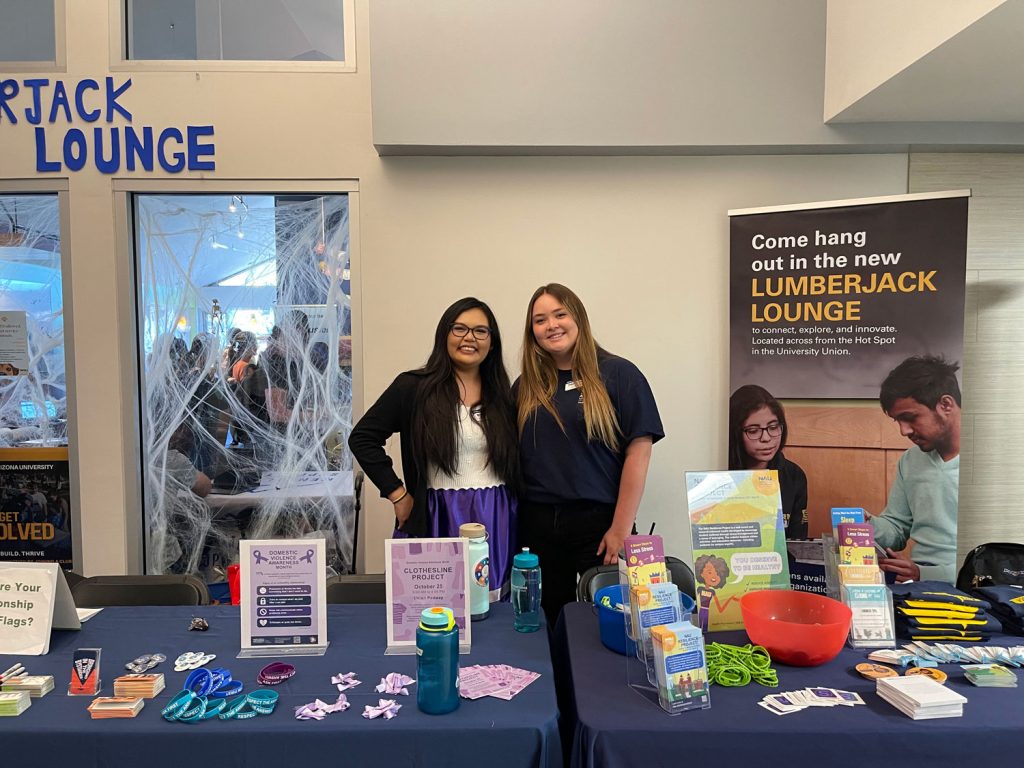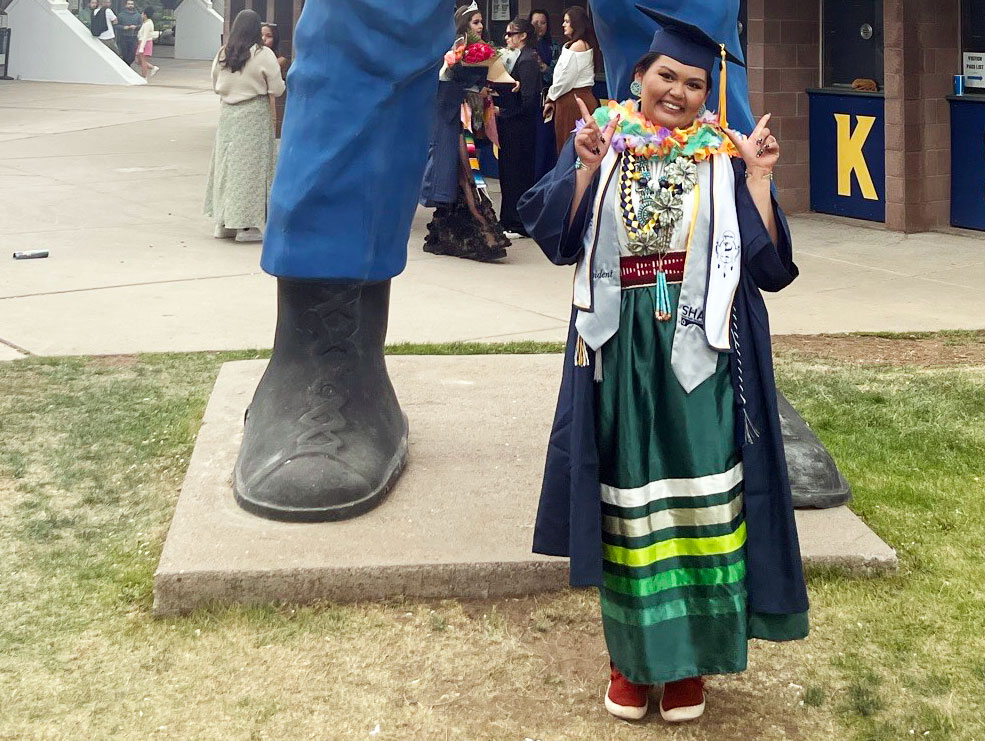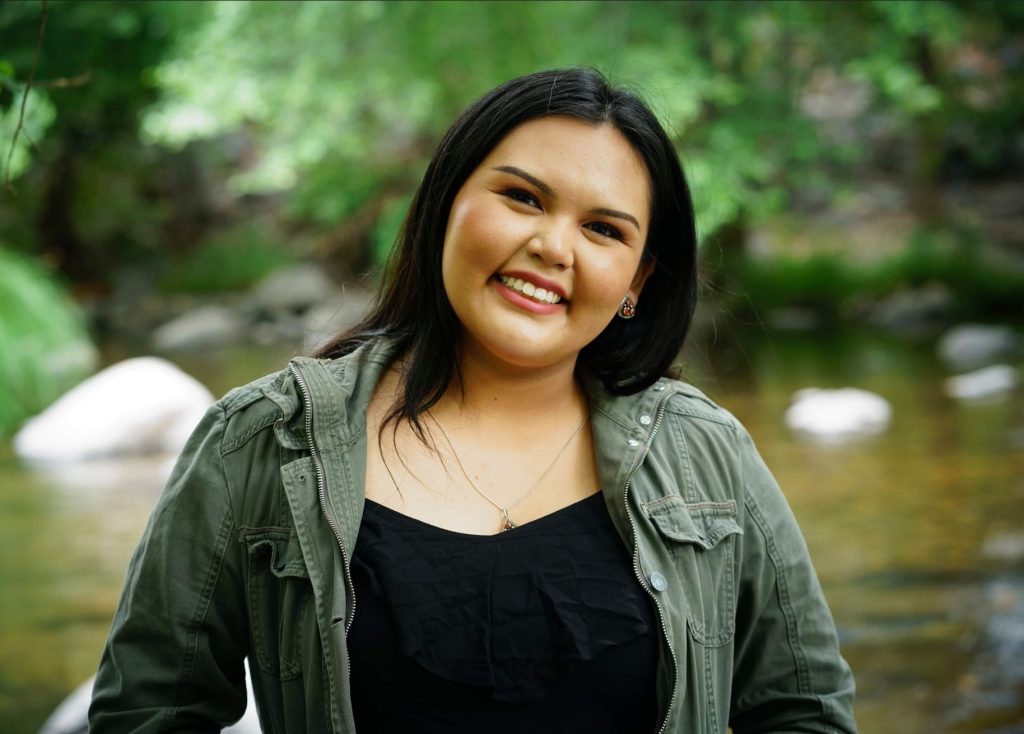Master of Public Health (MPH) student Brooke Graymountain Davis grew up on the Navajo Nation, where access to piped drinking water was scarce until just a few years ago. Her childhood experiences motivated her to confront health disparities in Native American communities in the Southwest and beyond. We caught up with Davis to hear why she chose NAU, what she’s doing in Washington, D.C., this summer as a Udall Congressional Intern and what she hopes to accomplish in her career.
What brought you to NAU?
I was drawn to NAU for its Master of Public Health program with its emphasis on Indigenous health. Growing up in a tribal community, I was deeply motivated to address health disparities in my home community on the Navajo Nation and other tribal communities. Moreover, NAU’s commitment to serving Native American communities and its location in Flagstaff, with its proximity to various tribal nations, provided the ideal environment for me to pursue my academic and career goals.

Why did you apply for the Udall internship?
I applied for the Udall internship because of its focus on tribal policy and its alignment with my passion for advocating for the well-being and sovereignty of tribal communities. This internship presents an invaluable opportunity to gain firsthand experience in federal policymaking and to contribute to initiatives that directly impact tribal communities. Additionally, the Udall internship offers a platform to further develop my research, communication and advocacy skills while engaging with tribal leaders and policymakers.
What will you be doing this summer in Washington?
I will be actively involved in supporting initiatives related to tribal policy and Indigenous affairs. My responsibilities may include conducting research on legislative issues affecting tribal communities, drafting policy briefs, attending congressional hearings and meetings and assisting with constituent communications. I will also have the opportunity to engage with tribal leaders, advocacy organizations and congressional staff to advocate for policies that promote tribal sovereignty and address the needs of Indigenous peoples.
How does this internship tie into your career goals?
By gaining firsthand experience in federal policymaking and advocacy, I will develop the skills and knowledge necessary to effectively advocate for policies that recognize tribal sovereignty and support the well-being of Indigenous peoples. This internship will provide me with valuable insights into the policymaking process and enhance my ability to serve as a leader and advocate within the field of public health, particularly in relation to Indigenous health issues.

When I was younger, I aspired to work in a field where I could make a positive impact on the health and well-being of others. While my career aspirations have evolved over time, my passion for public health and advocacy has remained constant. I am grateful to have found my calling in the field of public health, where I can work toward addressing health disparities and promoting health equity within Indigenous communities.
Tell me about a significant childhood memory and how it has impacted your life today.
One significant childhood memory that profoundly influences my life today is my upbringing in the remote communities of White Clay, Arizona. Growing up in these areas, where access to piped drinking water was limited until an Indian Health Services initiative during the COVID-19 pandemic, I experienced firsthand the impact of systemic challenges on tribal communities. This childhood experience deeply ingrained in me the importance of addressing such challenges and advocating for necessary resources and policies. It fueled my passion for public service and advocacy, driving me to represent the voices and concerns of my home communities. They serve as a constant reminder of the importance of my work in public health and fuel my dedication to making a positive impact in Indigenous communities.
What have you been most proud of recently?
Recently, I have been most proud of my role as the Sexual Assault and Relationship Violence graduate assistant at NAU. Through this position, I have had the opportunity to lead and contribute to various initiatives aimed at raising awareness and preventing sexual violence within the community. It has been incredibly rewarding to see the impact of these efforts in fostering a culture of care and respect on campus and supporting survivors of sexual assault and relationship violence.
What is your favorite way to spend a day off?
One of my favorite ways to spend a day off is to visit a local coffee shop, such as Lund Canyon Coffee, and immerse myself in a good book. I find comfort and relaxation in the cozy atmosphere of coffee shops, and I enjoy the opportunity to read a good book.
What are three things on your bucket list?
- Witness the Northern Lights or Aurora Borealis in person.
- Travel to and hike the Inca Trail to Machu Picchu in Peru.
- Visit the Sea of Stars in the Maldives.
Jill Kimball | NAU Communications
(928) 523-2282 | jill.kimball@nau.edu




